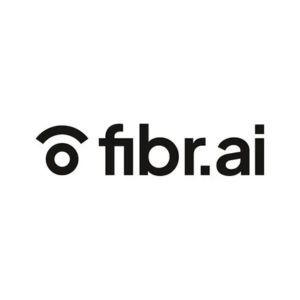Startups & Business News

OpenAI is quietly piloting a “Study Together” feature inside ChatGPT, signaling a major leap for AI-powered education in 2025. For students and educators tracking the evolution of generative AI, this experiment could reshape how we approach interactive learning, exam prep, and study collaboration.

What Is “Study Together” in ChatGPT?
The new Study Together mode transforms ChatGPT from a solo tutor into a collaborative study partner. Instead of just providing answers, it guides students step by step, breaking down complex topics, posing questions, and offering adaptive feedback. Early testers report that ChatGPT’s style shifts: it checks your understanding, asks follow-up questions, and clarifies concepts until you truly grasp the material.
But the real innovation? Collaboration. Students can either invite friends to join a session or use ChatGPT as a virtual study buddy. This approach aims to make learning more interactive, engaging, and social—a notable departure from traditional, isolated study routines.
Why Does This Matter for Students and Educators?
Active Learning: Instead of passively receiving information, students engage with the material, answer questions, and receive instant feedback.
Personalized Study Sessions: The AI adapts to each student’s pace and knowledge gaps, offering targeted explanations and review.
Collaborative Exam Prep: By enabling group study, ChatGPT could help students prepare more effectively for exams and assignments.
Scalable Tutoring: With AI as a facilitator, high-quality tutoring becomes accessible to more learners, regardless of location or schedule.
What challenges might educators face when adopting interactive AI study modes like "Study Together"
Educators adopting interactive AI study modes like “Study Together” may encounter several significant challenges:
Over-reliance on AI for Assignments: There is a risk that students might use AI tools to generate essays, reports, or even exam answers, leading to concerns about academic integrity and plagiarism. Detecting AI-generated content can be difficult, as plagiarism checkers may not keep pace with evolving AI capabilities.
Reduced Critical Thinking and Creativity: When AI provides direct solutions, students may become less inclined to develop independent problem-solving skills and original thought. This could hinder the development of essential critical thinking abilities and creativity.
Accuracy and Misinformation: Since AI models like ChatGPT draw from vast internet data, there is always a possibility of generating inaccurate or biased information. Educators must remain vigilant about the quality and reliability of AI-generated content, as misinformation can easily be incorporated into student work.
Technical Barriers and Digital Literacy: Not all educators are fully equipped or comfortable with integrating advanced technology into their teaching. This digital divide can create disparities in classroom effectiveness and student engagement. Institutions may need to invest in teacher training and infrastructure upgrades to ensure smooth adoption.
Need for Human Interaction: Some students prefer personal interaction, especially for complex, sensitive, or nuanced topics. AI may not be able to adequately address emotional or psychological needs, and students may feel disconnected or unsupported if human guidance is lacking.
Motivation and Self-Discipline: Interactive AI modes often require students to be self-motivated and disciplined. Without in-person supervision, learners may struggle with distractions, time management, and staying on task—challenges that are particularly acute for those with attention difficulties or less developed self-directed learning skills.
Equity and Access: Effective use of AI study modes depends on reliable internet access and up-to-date technology, which may not be available to all students. This can exacerbate existing inequalities in education.
Teacher Workload and Assessment: Educators must adapt their assessment methods to ensure that learning outcomes are genuinely achieved by students, not just by the AI. This may require more creative and individualized evaluation approaches, increasing teacher workload.
Managing Misinformation: The abundance of information online, including AI-generated content, increases the risk of students using or spreading misinformation. Fact-checking and digital literacy become even more critical in AI-enhanced classrooms.
What’s Next for “Study Together”?
While the feature is still in limited testing, its appearance in user prompts and growing reports from the community suggest a wider rollout could be imminent. OpenAI hasn’t released an official launch date, but the momentum signals a broader push into education-focused AI tools.
OpenAI is also developing Slack connectors and enhanced research tools, positioning ChatGPT as a central hub for both academic and professional collaboration.
ChatGPT’s “Study Together” mode could redefine how students learn—making study sessions more interactive, personalized, and collaborative than ever before. As generative AI continues to evolve, expect more innovations that blur the lines between tutor, study group, and digital assistant, all optimized for the new era of AI search and discovery.
Stay tuned for updates as OpenAI continues to push the boundaries of AI-powered education in 2025.

futureTEKnow
Editorial Team
futureTEKnow is a leading source for Technology, Startups, and Business News, spotlighting the most innovative companies and breakthrough trends in emerging tech sectors like Artificial Intelligence (AI), Robotics, and the Space Industry.
Discover the companies and startups shaping tomorrow — explore the future of technology today.
Most Popular
Trending Companies
Latest Articles

Foodforecast Raises €8M Series A to Slash Ultra-Fresh Food Waste with AI
Foodforecast, a Cologne AI foodtech firm, just scored €8M in Series A funding led by SHIFT Invest. Their tools predict
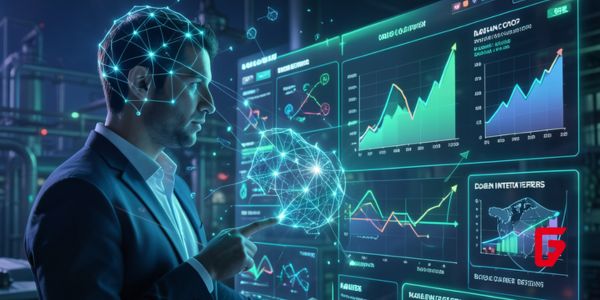
AI-Driven Operational Excellence: How Leaders Scale Ownership, Discipline, and Continuous Improvement in 2026
In 2026, AI scales operational excellence fundamentals—clear ownership, disciplined execution, and continuous improvement—letting leaders focus on outcomes while systems handle

VoiceLine raises €10M to scale voice AI for enterprise frontline teams
Munich-based VoiceLine has closed a €10M Series A round to grow its voice AI platform for frontline sales and service

AI-Driven Logistics & Distribution Transformation: From Insight to Scalable Impact
AI is redefining logistics transformation—from network design to real-time execution. This article explores how data-driven insight, intelligent automation, and scalable

Hai Robotics Hong Kong IPO: From Startup Funding to Warehouse Robot Leader
Shenzhen’s Hai Robotics, pioneer in ACR warehouse robots, files for HK IPO after raising over $500M in funding rounds led

AI-Enabled Process Engineering & Continuous Improvement: Designing Systems That Learn
Explore how AI transforms process engineering and continuous improvement into self-learning systems. This article explains how organizations can design operations
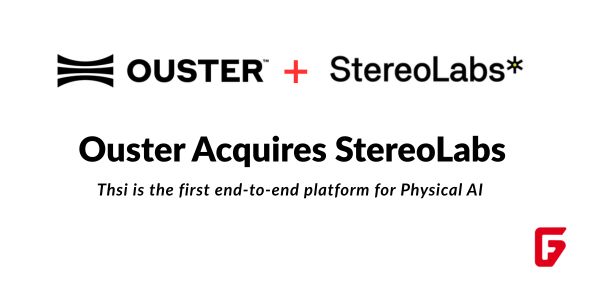
Ouster Acquires StereoLabs: Unified Physical AI Sensing Platform Launches
Ouster’s $35M StereoLabs acquisition fuses lidar and ZED cameras into end-to-end Physical AI sensing. Founders Cecile Schmollgruber and team drive
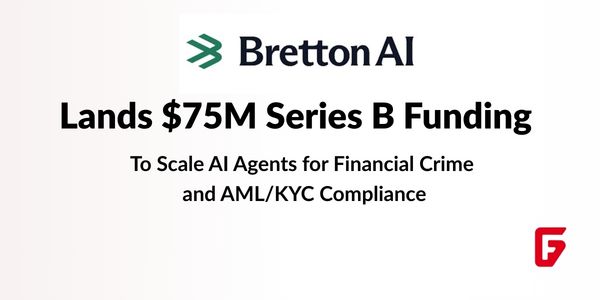
Bretton AI Lands $75M Series B Funding to Scale AI Agents for Financial Crime and AML/KYC Compliance
Bretton AI’s $75M Series B modernizes AML KYC compliance via AI agents, slashing staffing costs for banks and fintechs like

Axiom Space Raises $350M to Build Commercial Space Station and NASA Spacesuits
Axiom Space has locked in a fresh $350M raise to push its commercial space station and NASA lunar spacesuits toward

Santé Raises $7.6M Seed: AI Fintech Revolution for Wine and Liquor Retail
New York startup Santé secures $7.6M seed to build AI-powered POS for liquor stores, tackling regs & inventory woes after

Foundation Humanoid Robot: Phantom MK1 Overview, Military Plans, and Factory Deployments
Foundation’s Phantom MK1 humanoid robot hits factories and eyes military use. Check specs, pilots, and bold 50k goal by 2027.
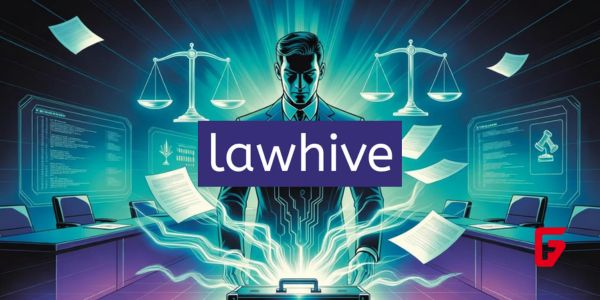
Lawhive Raises $60M Series B To Take Its AI-Powered Law Firm Model Across The US
Lawhive has secured a $60M Series B round to scale its AI-native law firm model across the US, promising faster,
futureTEKnow is focused on identifying and promoting creators, disruptors and innovators, and serving as a vital resource for those interested in the latest advancements in technology.
© 2026 All Rights Reserved.





